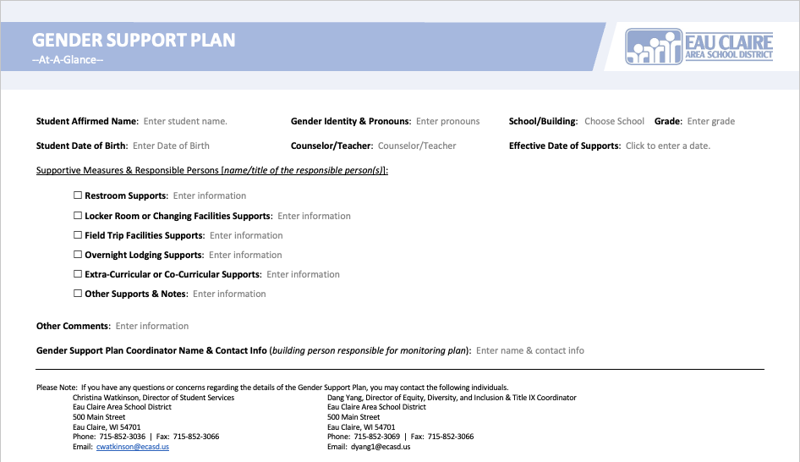The U.S. Supreme Court said it would not hear a case brought by parents in Wisconsin against their school district over its lack of a parental notification policy for students who change their gender.
Justice Brett Kavanaugh said he would have heard the case brought against an association of parents against the Eau Claire Area School District. Justices Samuel Alito and Clarence Thomas dissented from the court’s denial. Parental notification policies have sparked heated debates in hundreds of school board meetings and litigation in courts nationwide.
Parents say they have a right to know about changes to their children’s gender. LGBTQIA+ advocates say students should feel safe at school and should not have to worry about telling their parents about gender changes until they are comfortable.
In their dissent, Alito and Thomas said the case “presents a question of great and growing national importance: whether a public school district violates parents’ ‘fundamental constitutional right to make decisions concerning the rearing of’ their children, when, without parental knowledge or consent, it encourages a student to transition to a new gender or assists in that process.”
“We are told that more than 1,000 districts have adopted such policies,” the justices wrote in their dissent.
The dissent from the high court called Eau Claire Area School District’s 2021 transgender guidance “illustrative.”The district’s guidance creates “Student Gender Support Plan[s]” that govern what restroom students use, the sport team they play on and “social, medical, surgical, and/or legal processes,” the justices wrote.
The policy also recognizes that students may not be out to their parents and creates situations where staff would hide gender transitions from parents.
The lawsuit was brought by an organization called Parents Protection our Children, but lower courts ruled that they lacked standing based on a 2013 decision from the Seventh Circuit Court of Appeals, which intimated that parents can’t bring lawsuits against a school district over its gender notification policy unless their children are transgender or considering transition, the justices wrote.
Alito and Thomas disagreed with the lower court’s ruling based on that decision because “the challenged policy and associated equity training specifically encourage school personnel to keep parents in the dark about the ‘identities’ of their children, especially if the school believes that the parents would not support what the school thinks is appropriate.”
“Thus, the parents’ fear that the school district might make decisions for their children without their knowledge and consent is not ‘speculative,"” the justices wrote. “They are merely taking the school district at its word.”
The school district has a copy of its Gender Support Plan document available for download on its “Equity” webpage. It allows students to enter their affirmed name, gender identity and pronouns. It requires a staff member to be a “gender support plan coordinator,” who monitors the plan.
The document, which says it was updated in January this year, says its purpose is “to create shared understanding about the ways in which a student’s affirmed name and gender identity will be accounted for and supported at school. School staff, family, and the student should work together to complete this document.”
“It shall be made clear to the student that this plan is a student record that will be held in their cumulative file and can be released to their parents)/guardian(s), if requested,” the document says. “Every effort will be made to honor the student’s privacy and wishes, but this is not a privileged document between the student and the school district.”
In the Parent/Guardian portion of the document, it asks for the name of the parents and “how aware” they are of the student’s gender status and “how actively supportive” the parents are of “the requests detailed in this plan.”
The document says students do not need parental permission to request staff use a different name and affirmed gender identity. To change their name in the school recordkeeping system, students need at least one parent to say they are aware of their child’s gender status and supportive of the plan details.
The support plan says staff should balance student privacy with informing adults.
“In order to implement and communicate a student’s gender support plan in a safe and effective manner, work with the student to identify how and when this important information will be shared, when applicable. It is imperative to balance 1) student safety, 2) confidentiality, and 3) effective communication with staff and other adults who need to know,” the document reads.







